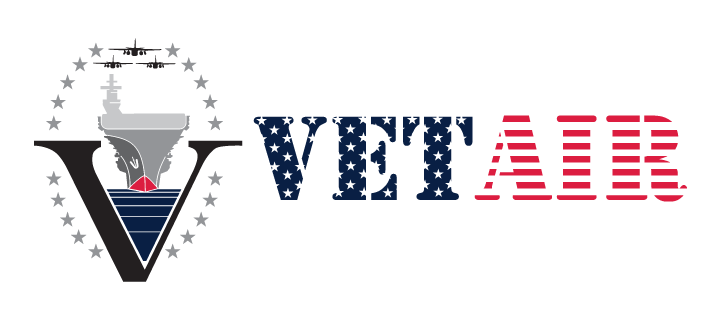frequently asked questions
Over the years, the technicians at VETAIR have heard and seen some pretty unbelievable things when it comes to commercial HVAC and residential HVAC. If you are looking for a professional air conditioning and heating company that who knows how to get things done right the first time, you are in the right place. Here are the answers to some of the many frequently asked questions (FAQs) we get from time to time.
general hvac knowledge, history and technology information
When was the first air conditioner invented?
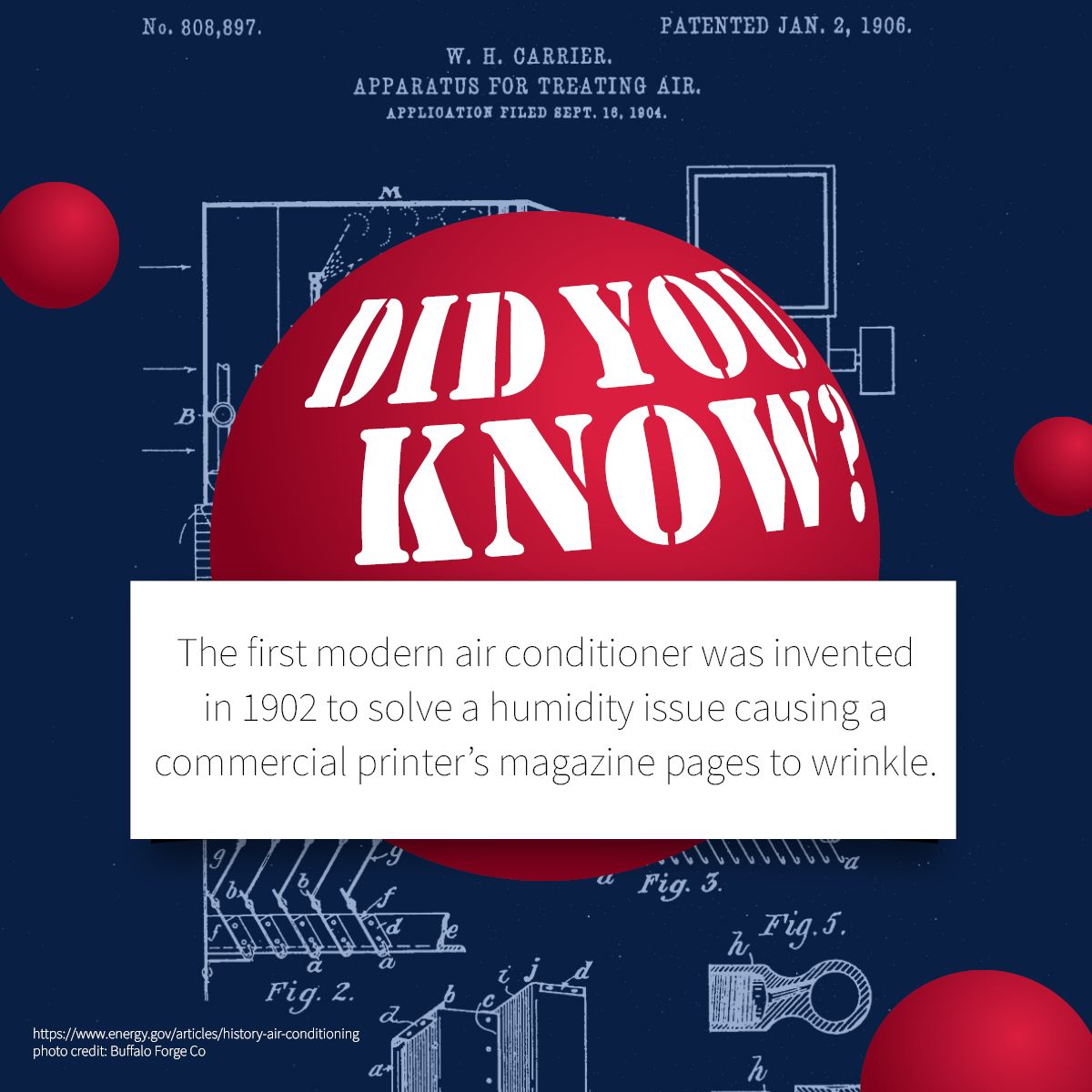
The first modern air conditioner was invented in 1902 to solve a humidity issue causing a commercial printer’s magazine pages to wrinkle.
Read more at:
Who invented the first mobile air conditioning unit?
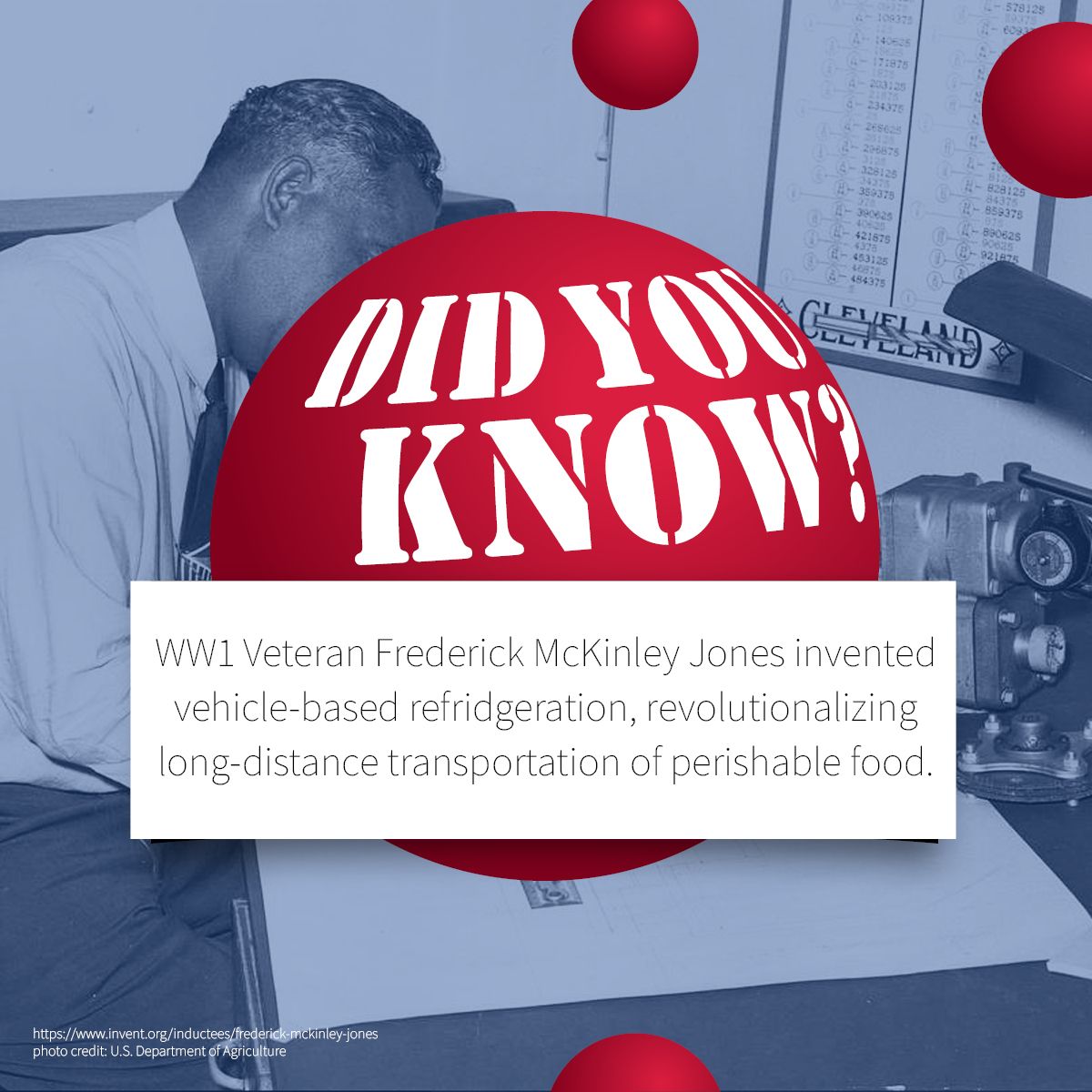
Ohio native and veteran Frederick McKinley Jones invented the first mobile air conditioner. His vehicle-based innovation transformed how perishable goods are delivered across the country, ensuring freshness and quality for all. As a result, he became the first Black member of the American Society of Refrigeration Engineers and was the first Black American to be awarded with the National Medal of Technology.
Read more at:
When was the first central heating system developed?
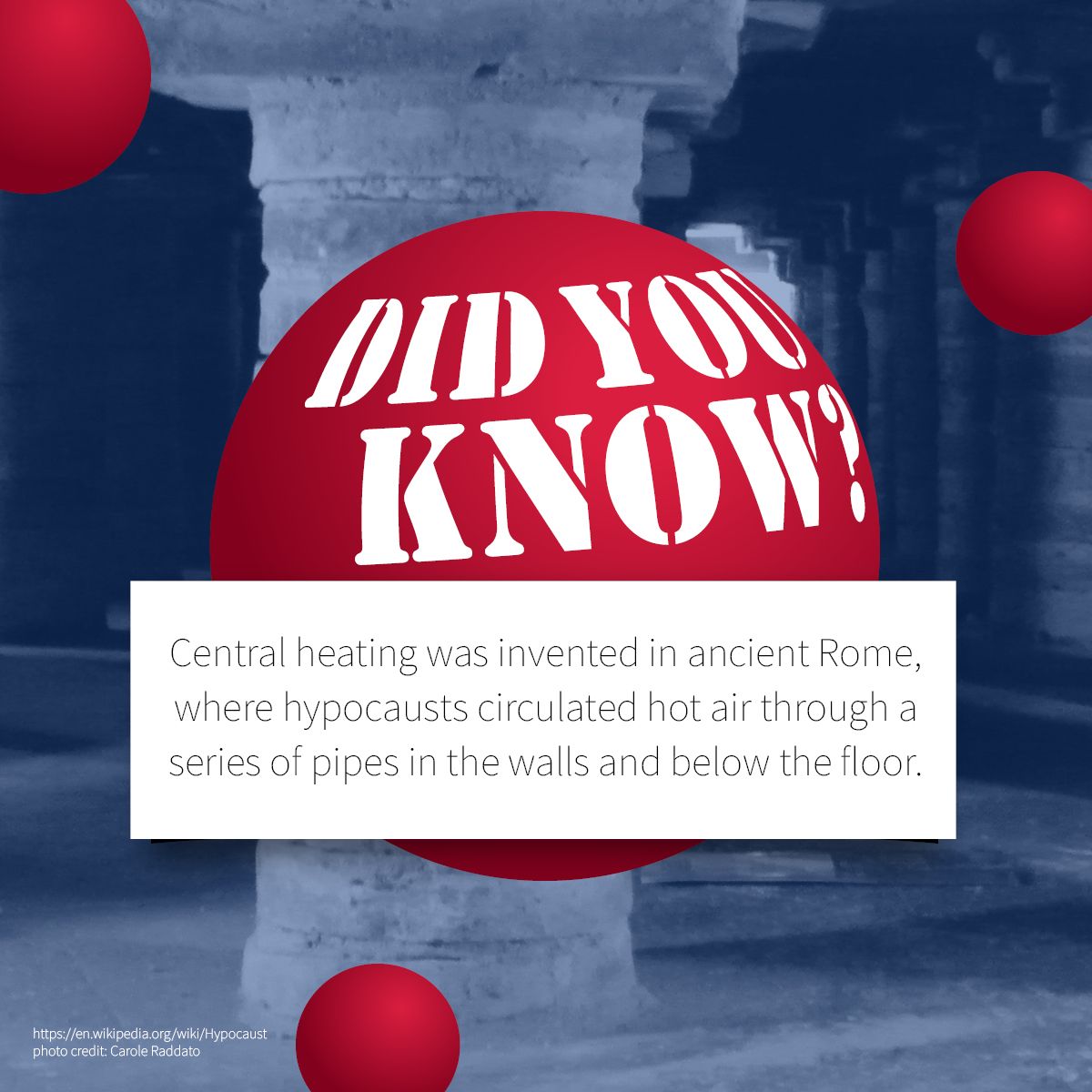
The ancient Roman hypocaust was an innovative engineering marvel designed to provide central heating throughout buildings.
This remarkable underfloor heating method utilized hot air generated by furnaces, circulating it beneath the floors and through the walls. The hypocaust is a true testament to the ancient ingenuity.
What is the origin of the gas heating furnace?
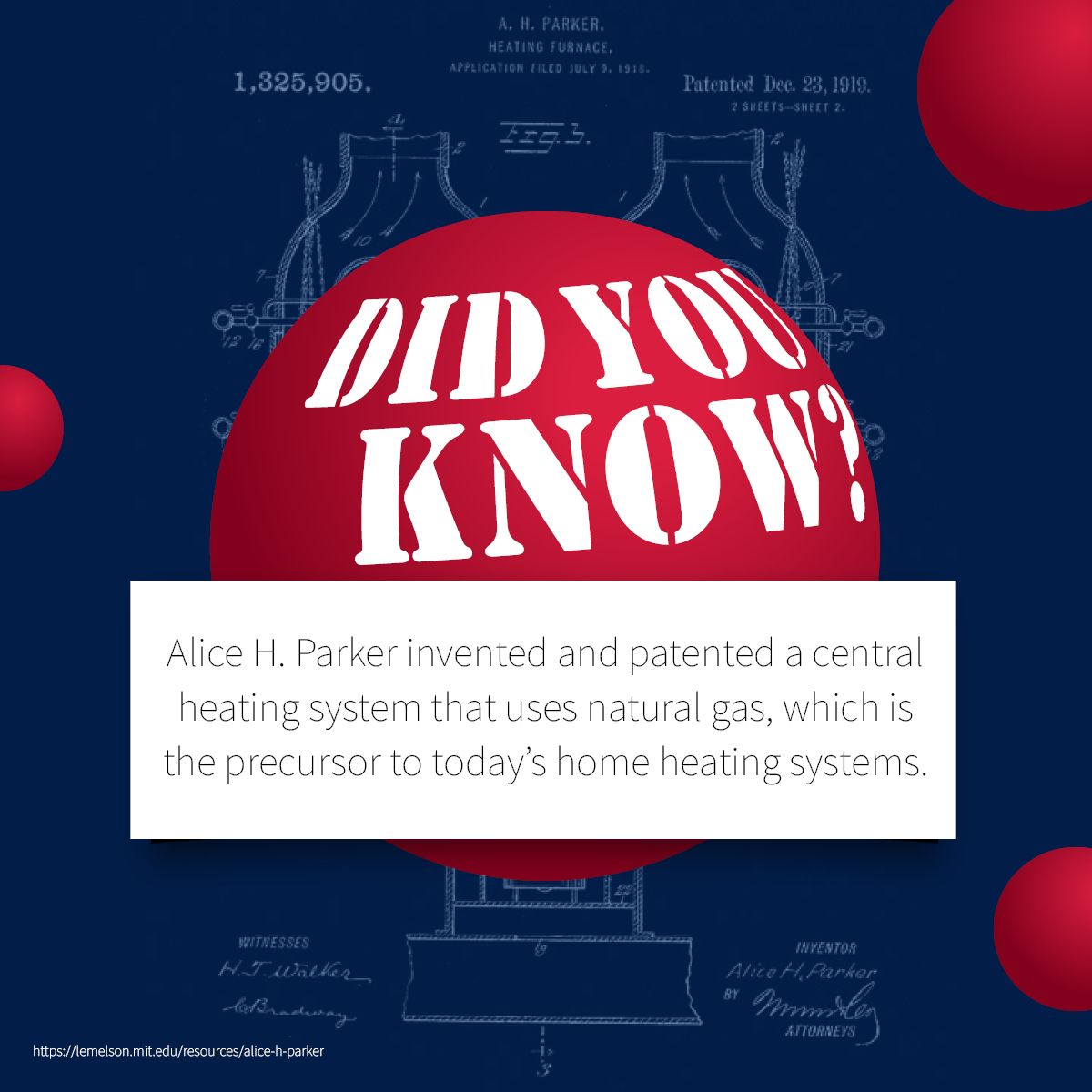
Alice H. Parker has an incredible legacy as a true pioneer in HVAC history. Her innovative design for the first gas heating furnace in 1919 revolutionized comfort in homes, paving the way for modern heating systems that keep us warm during winter even today.
Read more at:
extending the life of your air conditioning and heating system
How do I mount a HVAC heat pump outdoors?
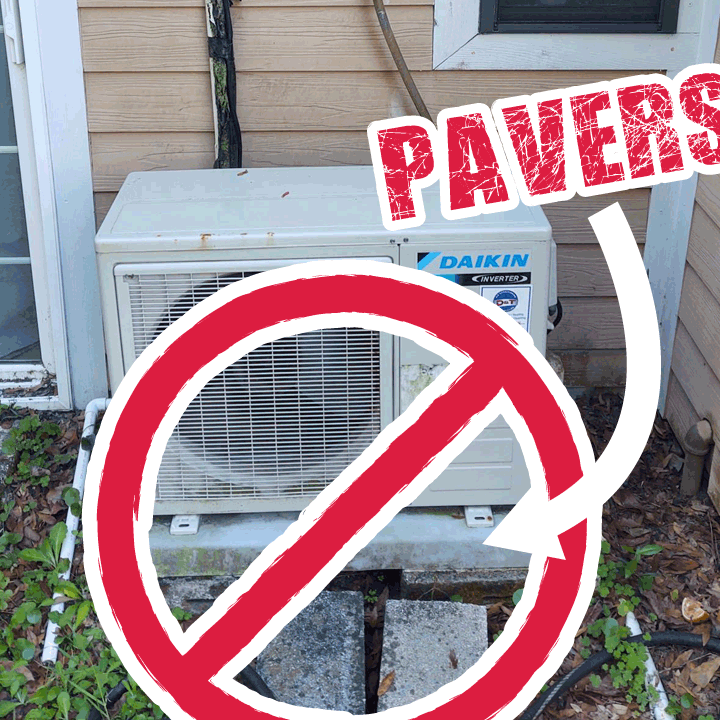
Because each Florida hurricane season is so unpredictable, it is critical to choose the right foundation for your HVAC system's heat pump. Although pavers or bricks might look appealing, they are insufficient for this task. Instead, choose a hurricane pad.
It is purposefully designed to withstand wind and rain during hurricanes, offering maximum stability resilience in the face harsh weather. This helps minimize movement which would disrupt system performance.
Should I buy a high quality air filter?
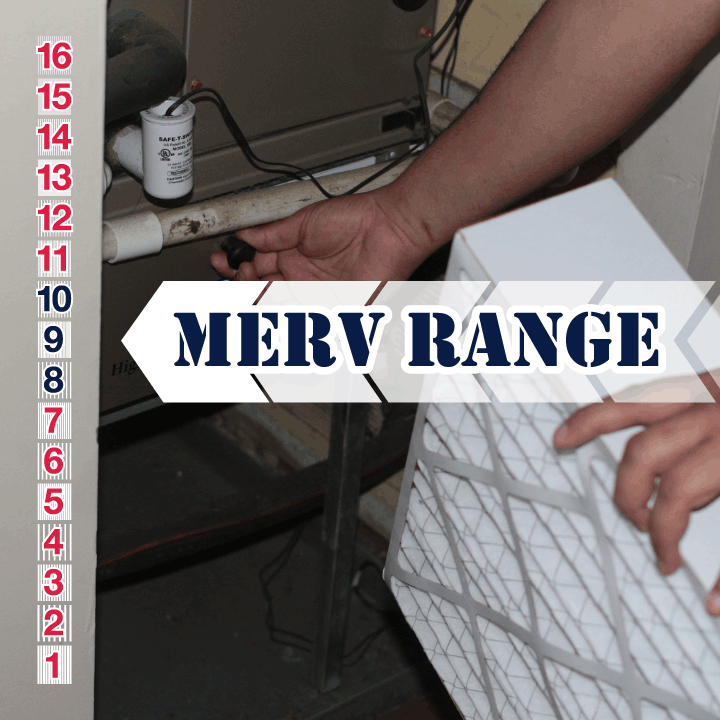
Many people wonder if a more expensive air filter will be worth the money. Remember that with air filters, you are investing in both cleaner air and higher HVAC system efficiency - which saves you money in the long run.
In priority order, here are the things to consider if you want to improve indoor air quality:
- Airflow
- Filtration level
- Price
You have to find the right balance, based on your health and the health of your family. Higher-rated filters have better dust and allergen capture but at what cost?
That’s why we recommend a MERV rating of 8-10 for optimal performance in your home or business. And don't forget to change your air filter every 1-3 months, based on it's published replacement period.
How can I stop my condensation line from clogging up?
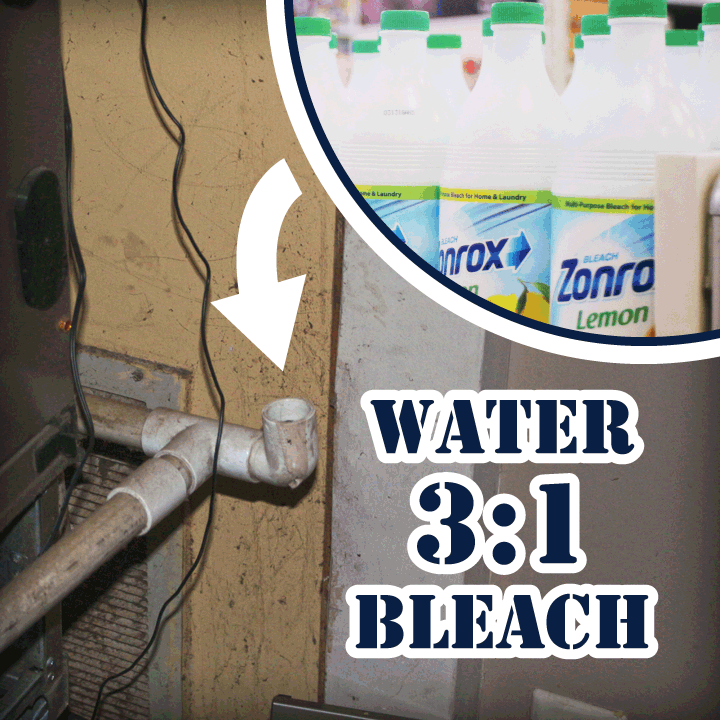
Keeping your system running in tip-top shape is essential for indoor air quality, comfort and cost-savings. One easy maintenance pro tip is to sanitize your condensation drain line each month.
By pouring a diluted mixture of vinegar or bleach down the line, you can clear out build-up and prevent gunky clogs that lead to system downtime, costly repairs, or even a wet vac intervention.
Stay ahead of the game and don’t let a small issue turn into a major problem. A little proactive upkeep goes a long way!
Where do I switch off the HVAC system power?
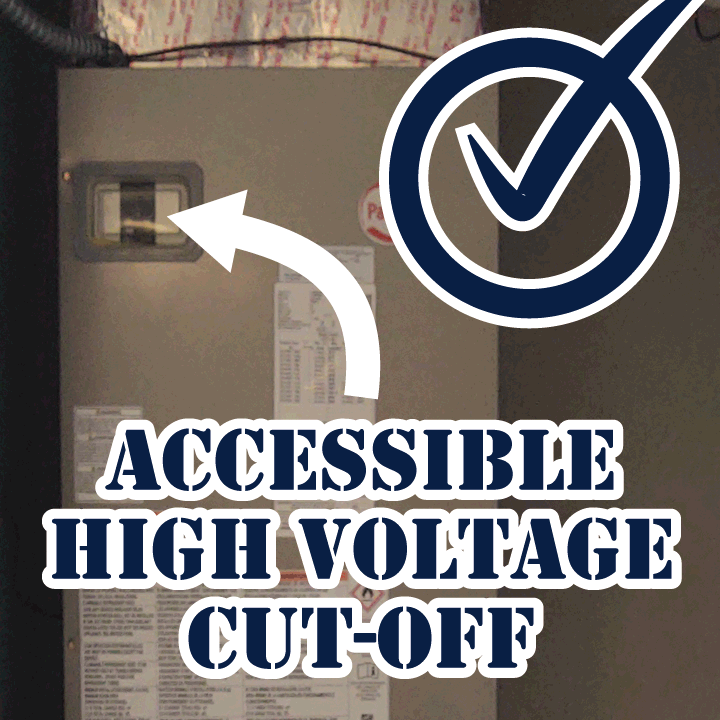
Safety is paramount in air conditioning maintenance. If VETAIR or another reputable HVAC company installed your system, there should be a high-voltage cut-off installed directly on or adjacent to the main unit.
That location provides immediate access for HVAC technicians to swiftly disconnect or reconnect power as needed, significantly reducing the risk of electrocution during repairs. If there is not a cut-off mounted in the direct vicinity of your indoor blower unit, we strongly recommend adding one.
Removing electrical hazards by prioritizing safety provides peace of mind, enables operational efficiency, and helps protect lives. Not to mention avoiding potential liability.
How do I stop my evaporator coil from freezing up then thawing and leaking?
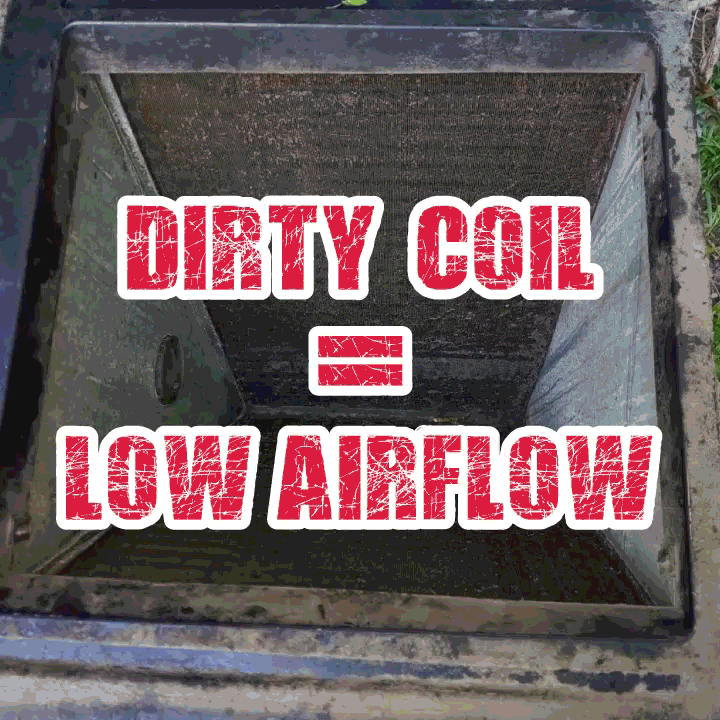
The key is to keep your HVAC system's evaporator coil clean. That will provide optimal airflow performance and stop the freeze and thaw cycles. But there are more reasons than that to keep it clean:
Consistent Comfort - Maximizing airflow through the coil prevents hot or cold spots, ensuring every corner of your home or office remains comfortable year-round.
Improved Energy Efficiency - A clean coil without dust or debris enhances heat exchange, reducing energy consumption and saving you on energy bills.
Better Air Quality - Preventing dust, allergens and harmful particles off a dirty coil from circulating in your home or place of business promotes a healthier environment for you and everyone else inside.
Extended Lifespan - Regular maintenance reduces system strain, prevents wear and tear, minimizes costly repairs, and prolonging your unit’s longevity.
Should I get my HVAC ducts cleaned?
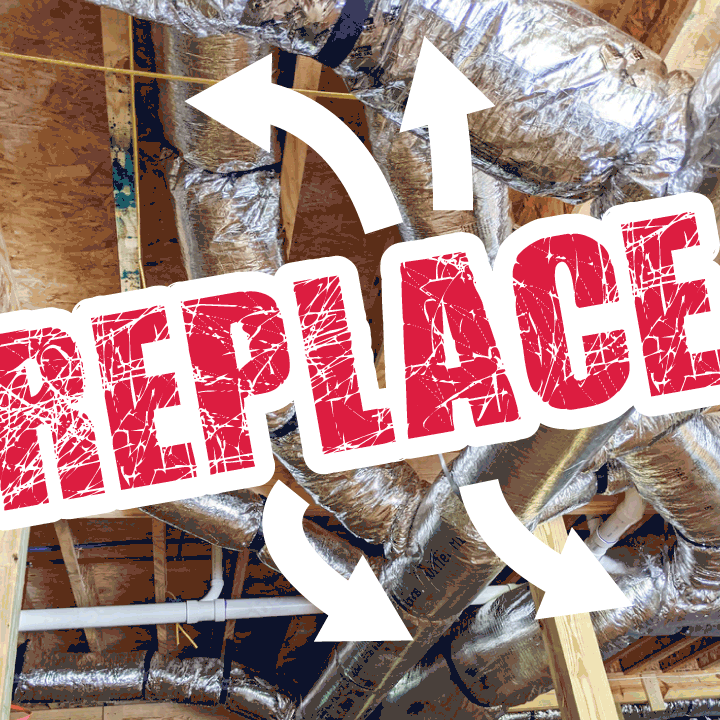
To clean or not to clean – that is the question, which we get a lot. If you are thinking about cleaning your ductwork it's important that you start by finding out what type you have.
If you have sheet metal ducts, cleaning can certainly improve airflow and reduce allergen spread.
However, sometimes it is better to replace instead of clean. Especially if you have flex ducts which are easily damaged by brushes, vacuums, or chemicals because they are essentially insulated foil skin over a wire skeleton. Poking a hole in flex duct leads to increased cooling costs and moisture damage.
The same goes for refraining from cleaning ductboard or fiberglass ducts. Running a brush or other agitation over the sides can release fiber and particles. You want to avoid circulating dangerous particles that are harmful to your lungs.
So ultimately, it's important to consider your options carefully and protect your health. And that starts with knowing what kind of ducts you have.
How do I know whether the reason for my higher energy bills are airflow-related?
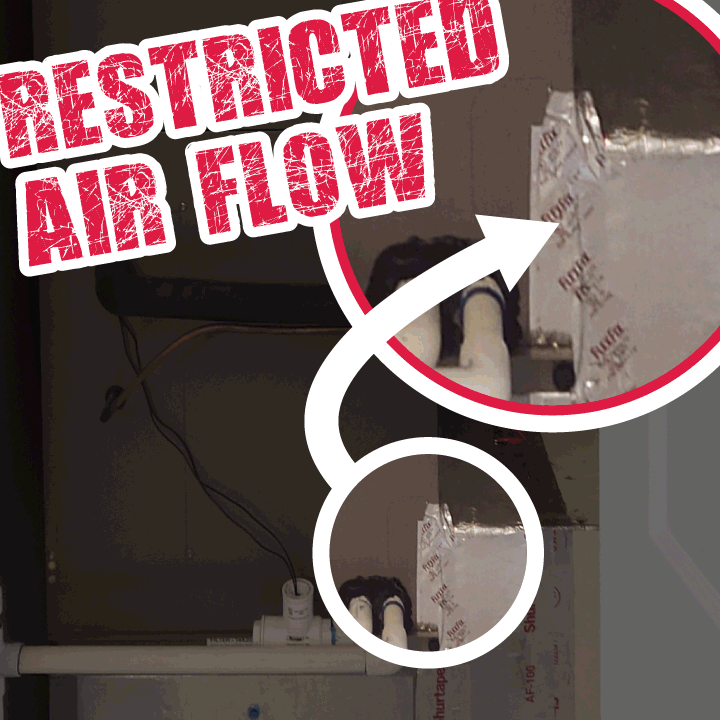
The main reasons for higher HVAC energy bills stem from inefficiency. Either inefficiency of operation, or of insulation.
Blocking any portion of your return duct will hamper airflow, causing your HVAC system to work harder. This added strain not only lowers efficiency but also shortens the lifespan of the unit.
The incorrect configuration of some return ducts can drastically reduce conditioning efficiency by over 20-25% because of the unnecessary airflow restriction. Please, don’t pay 20% more per month due to faulty ductwork installation.
Instead, we recommend adding a ductwork transition that removes any unnecessary obstructions to allow for 100% airflow efficiency.
What can I do to stop constantly having to replace minisplits?
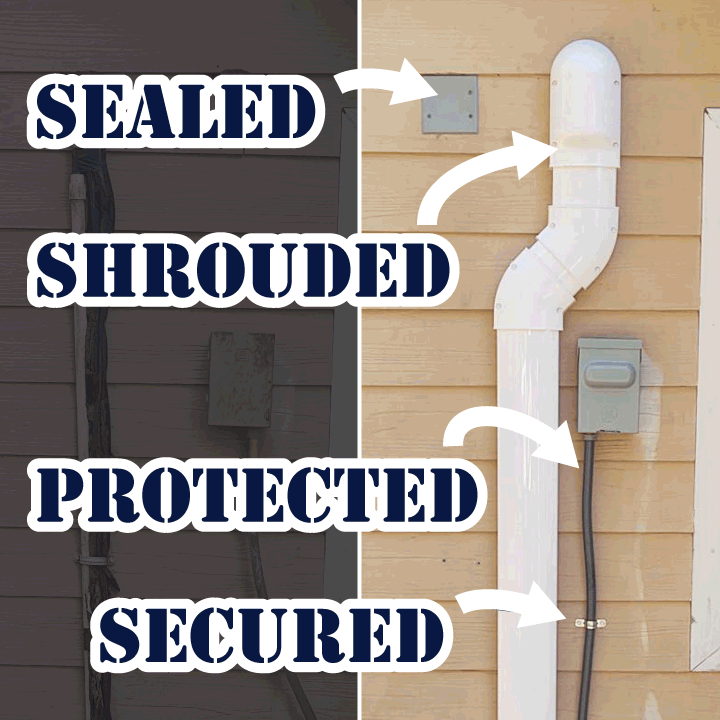
The indoor unit is one part of a greater whole. But because it's visible, it's easy to forget what the constant onslaught of sunshine, rain, and wind can do over time to the exterior components of your HVAC system. That is, until the system fails.
Here are some simple steps you can take to protect the connections between an air handler and heat pump:
- Make sure any wall penetrations are completely sealed up to avoid water intrusion and leaks.
- Replace disintegrating pipe insulation.
- Cover, shield or shroud exposed wires and pipes properly.
- Secure any hanging cables so they can’t be pulled on, tripped over, or jarred out.
How do I help extend the life of my air handler?
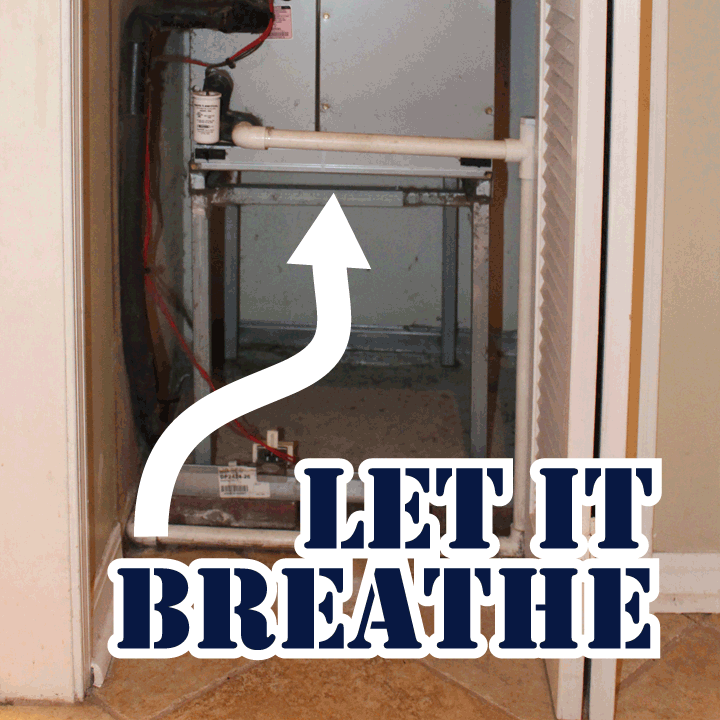
Like any machine, HVAC components will eventually wear out because they aren't engineered to last forever. One strategy to minimize wear and tear on your air handler is reducing airflow restriction.
If your system struggles to keep your space comfortable, help ensure it can breathe easy.
For instance: if there are no family members or guests around that will gawk at your air handler closet, go ahead and open up those louvered doors at consistent times throughout the week.
When friends come by to visit, perhaps you relocated a bookshelf or chair up against a wall, blocking the majority of the return vent. Don’t make your system suck all of its air through a straw… move that obstruction to the other wall.
Proper air circulation is crucial for efficient heating and cooling, and a clear return ensures your system functions optimally. This can help extend the life of compoents like your air handler.
Why does water keep backing up my drain line?
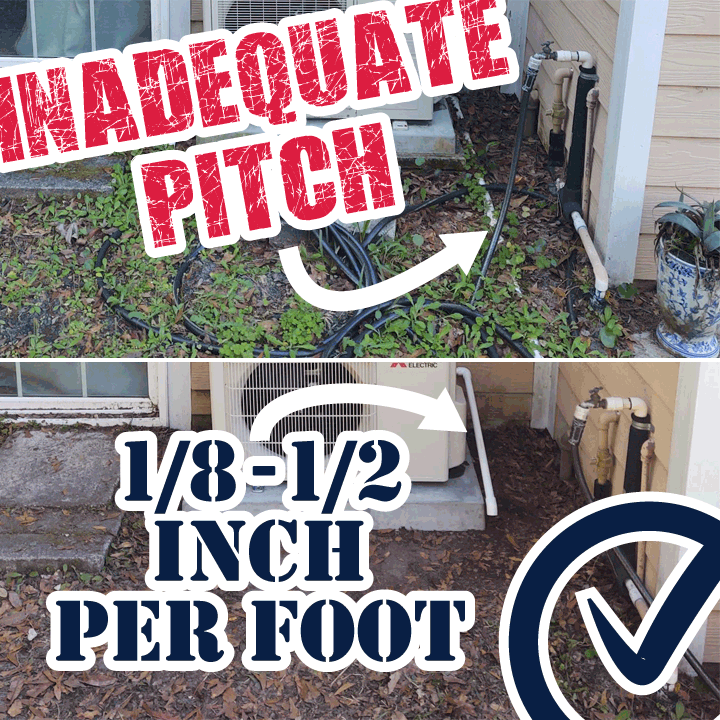
If water keeps pooling up from the drain line and you find yourself having to vacuum out your drain line every month, that could be because your condensation drain line does not have a proper pitch for effective drainage.
The optimal angle is a 1% slope. Any flatter than that, and you will run into clogs and water backing up to your system. Excessive pitch will reduce self-scouring action, leading to a build-up of residue in your line.
Make sure to keep it in the right range of between 1/8” and 1/2” per foot of line distance, in order to achieve optimal performance.
How often do I need preventive maintenance for my air conditioning and heating system?
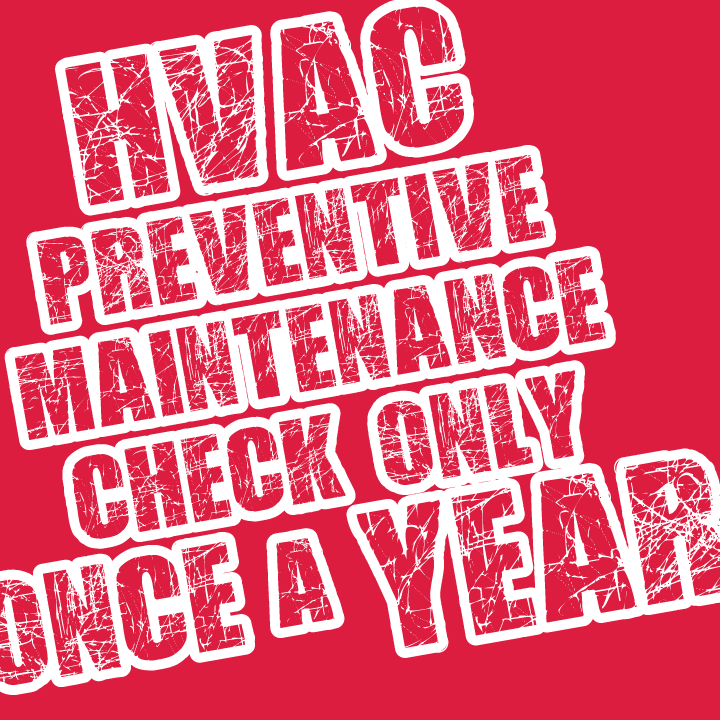
Once a year is just not enough to help keep your HVAC system running, especially when you rely on it when it gets hot out. Regular inspections help ensure your system maintains overall efficiency, and extends the longevity of your system - saving you money in the long run.
- HVAC systems in most residences should be serviced semiannually, or twice per year. Once in the first half, once in the second.
- Places of business with commercial systems and residences with 5 or more units should have quarterly checks. That means we should be seeing you every three months.
Prioritize your regular service calls to ensure your HVAC system remains in optimal condition, keeping your energy costs down and your indoor air quality high.
Should I install a UV-C light in my air handler?
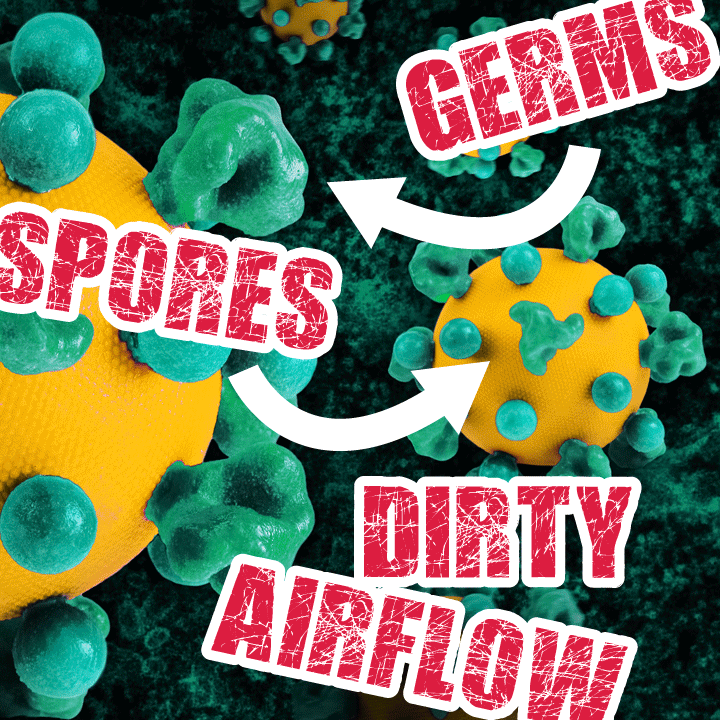
Installing a UV-C light shines a cleansing light in your air handler to help reduce risks to your family’s health.
This light sterilizes all of the air flowing through the blower unit so it isn't circulated into your ducts.
That means air contaminents are effectively neutralized, helping reduce debilitating airborne allergen reactions for people who suffer from chronic breathing challenges.
How can airflow rebalancing help me sleep better?

Having your airflow rebalanced by a qualified HVAC contractor can help you lose less sleep, waste less money, and more evenly heat and cool your home. Here are some additional benefits:
- Improved Comfort: Provides multiple zone control of consistent temperatures in every room.
- Enhanced Efficiency: Optimizes system performance, reducing energy bills.
- Extended System Life: Minimizes wear and tear on your HVAC system, reducing the frequency of repairs and replacements.
- Better Air Quality: Reduces dust and allergens circulating in your home creating a healthier environment.
- Muted Air Distribution: Reduces distracting and annoying noise because of imbalanced airflow.
greater Jacksonville, Florida metropolitan HVAC service area
Does VETAIR provide Beauclerc HVAC service?
Yes, we serve the Beauclerc area in 32257. Here is a route you could take to reach VETAIR, and we would do the reverse to reach you :
- Head east on Beauclerc Rd toward Lita Rd W for 0.4 mi,
- turn right onto San Jose Blvd in 0.6 mi,
- use the left 2 lanes to turn left onto Old St Augustine Rd and continue for 2.3 mi,
- turn right and continue for 272 ft,
- turn left and continue for 282 ft,
- turn right and continue for 371 ft,
- take a sharp left and continue 33 ft to reach the destination on the left.
Here is the route through a map application:
Does VETAIR provide Pickwick Park HVAC service?
Yes, we serve the Pickwick Park area in 32257. Here is a route you could take to reach VETAIR, and we would do the reverse to reach you :
- Head southwest on Old Orchard Rd toward Scott Mill Rd for 0.1 mi,
- turn left onto Scott Mill Rd and continue for 0.5 mi,
- turn left onto Oak Bluff Ln and continue for 0.2 mi,
- turn right onto FL-13 S/San Jose Blvd and continue for 0.6 mi,
- make a slight right to merge onto I-295 S toward St Augustine and continue for 1.8 mi,
- take exit 3 for Old St Augustine Rd and continue for 0.3 mi,
- stay straight onto Old St Augustine Rd and continue for 0.2 mi,
- make a slight left and continue for 154 ft,
- turn left after 272 ft, turn right after 282 ft,
- make a sharp left after 371 ft,
- then the destination will on the right in 33 ft.
Here is the route through a map application:
Does VETAIR provide Arrowhead HVAC service?
Yes, we serve the Arrowhead area in 32257. Here is a route you could take to reach VETAIR, and we would do the reverse to reach you:
- Head southeast on Arrowhead Dr toward Foxcroft Rd for 0.4 mi,
- then turn left onto Indian Walk Rd and continue for 0.1 mi,
- then turn left onto Hartley Rd and continue for 0.6 mi,
- then use the right 2 lanes to turn right onto Old St Augustine Rd and continue for 0.8 mi,
- then turn right and continue for 272 ft,
- then turn left and continue for 282 ft,
- then turn right and continue for 371 ft,
- then make a sharp left and destination will be on the right in 33 ft.
Here is the route through a map application:
Does VETAIR provide Southwood HVAC service?
Yes, we serve the Southwood area in 32257. Here is a route you could take to reach VETAIR, and we would do the reverse to reach you :
- Head north on Pine Acres toward Livingston Rd for 243 ft,
- then turn right onto Livingston Rd and continue for 0.5 mi,
- then turn right onto Old St Augustine Rd and continue for 0.3 mi,
- then turn right and continue for 272 ft,
- then turn left and continue for 282 ft,
- then turn right and continue for 371 ft,
- make a sharp left and continue for 33 ft to the destination on the right.
Here is the route through a map application:
Does VETAIR provide Craven HVAC service?
Yes, we serve the Craven area in 32257. Here is a route you could take to reach VETAIR, and we would do the reverse to reach you :
- Head northeast toward Trevi Dr for 62 ft,
- then turn right onto Trevi Dr and continue for 138 ft,
- then turn right at the 1st cross street onto Craven Rd and continue for 0.3 mi,
- then turn right onto Sunbeam Rd and continue for 1.0 mi,
- then use the left lane to turn left onto San Jose Blvd,
- continue for 0.2 mi and use the left 2 lanes to turn left onto Old St. Augustine Rd,
- continue for 2.3 mi then turn right,
- continue for 272 ft then turn left,
- continue for 282 ft then turn right,
- continue for 371 ft then make a sharp left,
- continue for 33 ft and your destination will be on the right.
Here is the route through a map application:
Does VETAIR provide Sunbeam HVAC service?
Yes, we serve the Sunbeam area in 32257. Here is a route you could take to reach VETAIR, and we would do the reverse to reach you :
- Head west on Sun Gdn Dr toward Craven Rd for 0.1 mi,
- turn right onto Craven Rd and continue for 0.8 mi,
- then turn left onto Sunbeam Rd and continue for 1.0 mi,
- then use the left lane to turn left onto San Jose Blvd and continue for 0.2 mi,
- then use the left 2 lanes to turn left onto Old St Augustine Rd and continue for 2.3 mi,
- then turn right and continue for 272 ft,
- then turn left and continue for 282 ft,
- then turn right and continue for 371 ft,
- then take a sharp left and continue for 33 ft to your destination on the right.
Here is the route through a map application:
Does VETAIR provide Mandarin Station HVAC service?
Yes, we serve the Mandarin Station area in 32257. Here is a route you could take to reach VETAIR, and we would do the reverse to reach you :
- Head south on Lippizan Dr toward Pergran Ct for 0.3 mi,
- then turn right onto Pergran Ct and continue for 282 ft,
- then turn left onto Lippizan Dr and continue for 0.2 mi,
- then turn right onto Losco Rd and continue for 1.0 mi,
- then use the middle lane to turn sharply left onto Old St Augustine Rd,
- continue for 430 ft then turn right,
- continue for 272 ft then turn left,
- continue for 282 ft then turn right,
- continue for 371 ft then make a sharp left,
- continue for 33 ft and the destination will be on the right.
Here is the route through a map application:
Does VETAIR provide Baymeadows HVAC service?
Yes, we serve the Baymeadows Center area in 32257. Here is a route you could take to reach VETAIR, and we would do the reverse to reach you :
- Head southwest on Freedom Crossing Trail toward US-1 N,
- then after 13 ft turn left at the 1st cross street onto US-1 S,
- then after 2.3 mi use the right lane to take the ramp onto I-95 S,
- then continue for 0.3 mi and merge onto I-95 S,
- then continue for 0.6 mi,
- then use the right 2 lanes to take exit 337 to merge onto I-295 N toward Orange Park,
- then continue for 1.9 mi and keep right to stay on I-295 N,
- then continue for 0.9 mi and use the right lane to take exit 3 for Old St Augustine Rd,
- then continue for 0.3 mi and merge onto Old St Augustine Rd,
- then after 0.1 mi make a slight left,
- then continue for 154 ft and turn left,
- then continue for 272 ft and turn left,
- then continue for 282 ft and turn right,
- then continue for 371 ft and make a sharp left,
- then after 33ft the destination will be on the right.
Here is the route through a map application:
Does VETAIR provide Mandarin HVAC service?
Yes, we serve the Mandarin area in 32257. Here is a route you could take to reach VETAIR, and we would do the reverse to reach you :
- Head east on Orange Picker Rd toward Corner Oaks Dr for 0.5 mi,
- then turn left onto San Jose Blvd and continue for 0.8 mi,
- then turn right onto Loretto Rd and continue for 2.0 mi,
- then use the left 2 lanes to turn left onto Old St Augustine Rd,
- then continue for 0.8 mi and make a slight left,
- then continue for 154 ft,
- then turn left and continue for 272 ft,
- then turn left and continue for 282 ft,
- then turn right and continue for 371 ft,
- then make a sharp left and continue 33 ft to your destination on the right.
Here is the route through a map application:
Does VETAIR provide Loretto HVAC service?
Yes, we serve the Loretto area in 32223. Here is a route you could take to reach VETAIR, and we would do the reverse to reach you :
- Head south on W Ride Dr toward Grassy Ride Dr for 0.4 mi,
- then turn right onto Lake Ride Dr and continue for 154 ft,
- then turn left at the 1st cross street onto Loretto Rd and continue for 0.9 mi,
- then use the left 2 lanes to turn left onto Old St Augustine Rd and continue for 0.8 mi,
- then make a slight left and continue for 154 ft,
- then turn left and continue for 272 ft,
- then turn left and continue for 282 ft,
- then turn right and continue for 371 ft,
- then make a sharp left and the destination will be on the right in 33 ft.
Here is the route through a map application:
Does VETAIR provide Creekside HVAC service?
Yes, we serve the Creekside area in 32223. Here is a route you could take to reach VETAIR, and we would do the reverse to reach you :
- Head north on Camellia Bay Dr W for 0.2 mi,
- then turn left at the 1st cross street onto Camellia Bay Dr E and continue for 184 ft,
- then turn right onto Julington Creek Rd and continue for 0.4 mi,
- then turn left onto Aladdin Rd and continue for 1.4 mi,
- then turn right onto Loretto Rd and continue for 0.9 mi,
- then use the left 2 lanes to turn left onto Old St Augustine Rd and continue for 0.8 mi,
- then make a slight left and continue for 154 ft,
- then turn left after Taco Bell and continue for 272 ft,
- then turn left and continue for 282 ft,
- then turn right and continue for 371 ft,
- then make a sharp left and the destination will be on the right in 33 ft.
Here is the route through a map application: a
Does VETAIR provide Marbon HVAC service?
Yes, we serve the Marbon area in 32223. Here is a route you could take to reach VETAIR, and we would do the reverse to reach you :
- Head northeast on Marbon Rd toward Cheyenne Trail for 0.7 mi,
- then turn left onto Aladdin Rd and continue for 0.4 mi,
- then turn right onto Loretto Rd and continue for 0.9 mi,
- then use the left 2 lanes to turn left onto Old St Augustine Rd and continue for 0.8 mi,
- then make a slight left and continue for 154 ft,
- then turn left and continue for 272 ft,
- then turn left and continue for 282 ft,
- then turn right and continue for 371 ft,
- then make a sharp left and the destination will be on the right in 33 ft.
Here is the route through a map application:
Does VETAIR provide Del Rio HVAC service?
Yes, we serve the Del Rio area in 32258. Here is a route you could take to reach VETAIR, and we would do the reverse to reach you :
- Head north on Del Rio Dr toward Harp St for 0.7 mi,
- then turn right onto Deeder Ln and continue for 0.1 mi,
- then turn left onto Old St Augustine Rd and continue for 2.2 mi,
- then make a slight left and continue for 154 ft,
- then turn left after Taco Bell and continue for 272 ft,
- then turn left and continue for 282 ft,
- then turn right and continue for 371 ft,
- then make a sharp left and the destination will be on the right in 33 ft.
Here is the route through a map application:
Does VETAIR provide Greenland HVAC service?
Yes, we serve the Greenland area in 32258. Here is a route you could take to reach VETAIR, and we would do the reverse to reach you :
- Head southwest on Liberty Lake Dr S toward Summit Lake Dr for 413 ft,
- then turn left onto Summit Lake Dr and continue for for 0.2 mi,
- then turn right onto London Lake Dr W and continue for 0.5 mi,
- then turn left onto Lake Fern Dr and continue for 0.5 mi,
- then make a slight right onto Coastal Ln and continue for 289 ft,
- then turn left onto Greenland Rd and continue 2.3 mi,
- then use the right 2 lanes to turn right onto Old St Augustine Rd and continue for 0.8 mi,
- then make a slight left and continue for 154 ft,
- then turn left and continue for 272 ft,
- then turn left and continue for 282 ft,
- then turn right and continue for 371 ft,
- then make a sharp left and the destination will be on the right in 33 ft.
Here is the route through a map application:
Does VETAIR provide Goodby's Creek HVAC service?
Yes, we serve the Goodby's Creek area in 32217. Here is a route you could take to reach VETAIR, and we would do the reverse to reach you :
- Head south on La Losa Dr W toward San Servera Dr S for 482 ft,
- then turn right onto San Servera Dr S and continue for 0.2 mi,
- then continue straight onto Waterfront Terrace for 0.2 mi,
- then turn right onto Baymeadows Rd and continue for 0.2 mi,
- then use the left 2 lanes to turn left onto San Jose Blvd and continue for 1.0 mi,
- then use the left 2 lanes to turn left onto Old St Augustine Rd and continue for 2.3 mi,
- then turn right and continue for 272 ft,
- then turn left and continue for 282 ft,
- then turn right and continue for 371 ft,
- then make a sharp left and the destination will be on the right in 33 ft.
Here is the route through a map application:
Does VETAIR provide Monclair HVAC service?
Yes, we serve the Monclair area in 32217. Here is a route you could take to reach VETAIR, and we would do the reverse to reach you :
- Head east on Silvery Ln toward San Jose Blvd,
- then turn right onto San Jose Blvd and continue for 1.9 mi,
- then use the left 2 lanes to turn left onto Old St Augustine Rd,
- then continue for 2.3 mi and turn right,
- then continue for 272 ft and turn left,
- then continue for 282 ft and turn right,
- then continue for 371 ft and make a sharpe left,
- then continue for 33 ft and the destination will be on the right.
Here is the route through a map application:
Does VETAIR provide Brierwood HVAC service?
Yes, we serve the Brierwood area in 32217. Here is a route you could take to reach VETAIR, and we would do the reverse to reach you :
- Head south on Philrose Dr W toward San Clerc Rd,
- then turn right onto San Clerc Rd and continue for 0.9 mi,
- then turn left onto San Jose Blvd and continue for 1.6 mi,
- then use the left 2 lanes to turn left onto Old St Augustine Rd and continue for 2.3 mi,
- then turn right and continue for 272 ft,
- then turn left and continue for 282 ft,
- then turn right and continue for 371 ft,
- then make a sharp left and the destination will be on the right in 33 ft.
Here is the route through a map application:
Does VETAIR provide San Jose HVAC service?
Yes, we serve the San Jose area in 32217. Here is a route you could take to reach VETAIR, and we would do the reverse to reach you :
- Head southeast on Pizarro Rd toward Hernando Rd,
- then turn right onto Hernando Rd and continue for 322 ft,
- then turn left at the 1st cross street onto Marianna Rd and continue for 0.5 mi,
- then continue straight onto Conga St and continue for 0.4 mi,
- then turn right to stay on Conga St and continue for 0.2 mi,
- then turn left onto San Jose Blvd and continue for 2.1 mi,
- then use the left 2 lanes to turn left onto Old St Augustine Rd and continue for 2.3 mi,
- then turn right and continue for 272 ft,
- then turn left and continue for 282 ft,
- then turn right and continue for 371 ft,
- then make a sharp left and the destination will be on the right in 33 ft.
Here is the route through a map application:
Does VETAIR provide San Jose Forest HVAC service?
Yes, we serve the San Jose Forest area in 32217. Here is a route you could take to reach VETAIR, and we would do the reverse to reach you :
- Head southeast on Dupont Ave and turn left onto San Jose Blvd,
- then continue South on San Jose Blvd for 3.6 mi,
- then use the left 2 lanes to turn left onto Old St Augustine Rd and continue for 2.3 mi,
- then turn right and continue for 272 ft,
- then turn left and continue for 282 ft,
- then turn right and continue for 371 ft,
- then make a sharp left and the destination will be on the right in 33 ft.
Here is the route through a map application:
Does VETAIR provide Lakewood HVAC service?
Yes, we serve the Lakewood area in 32217. Here is a route you could take to reach VETAIR, and we would do the reverse to reach you :
- Head south on Stetson Rd and turn right onto University Blvd W,
- then continue for 0.4 mi and turn left onto San Jose Blvd,
- then continue for 4.7 mi and use the left 2 lanes to turn left onto Old St Augustine Rd,
- then continue for 2.3 mi and turn right,
- then continue for 272 ft and turn left,
- then continue for 282 ft and turn right,
- then continue for 371 ft and make a sharp left,
- then continue for 33 ft and the destination will be on the right.
Here is the route through a map application:
Does VETAIR provide Miramar HVAC service?
Yes, we serve the Miramar area in 32207. Here is a route you could take to reach VETAIR, and we would do the reverse to reach you :
- Head Southeast on Gadsden Rd and turn left onto San Jose Blvd,
- then continue for 0.4 mi and turn right onto Hendricks Ave/San Jose Blvd,
- then continue for 5.6 mi and use the left 2 lanes to turn left onto Old St Augustine Rd,
- then continue for 2.3 mi and turn right,
- then continue for 272 ft and turn left,
- then continue for 282 ft and turn right,
- then continue for 371 ft and make a sharp left,
- then continue for 33 ft and the destination will be on the right.
Here is the route through a map application:
Does VETAIR provide Pine Forest HVAC service?
Yes, we serve the Pine Forest area in 32207. Here is a route you could take to reach VETAIR, and we would do the reverse to reach you :
- Head East on Larsen Rd to Victor Stand turn right,
- then continue for 0.5 mi and turn right onto Powers Ave,
- then continue for 0.2 mi and turn left onto St Augustine Rd E,
- then continue for 1.9 mi and use any lane to turn slightly left onto San Jose Blvd,
- then continue for 2.9 mi and use the left 2 lanes to turn left onto Old St Augustine Rd,
- then continue for 2.3 mi and turn right
- then continue for 272 ft and turn left,
- then continue for 282 ft and turn right,
- then continue for 371 ft and make a sharp left,
- then continue for 33 ft and the destination will be on the right.
Here is the route through a map application:
Does VETAIR provide Englewood HVAC service?
Yes, we serve the Englewood area in 32207. Here is a route you could take to reach VETAIR, and we would do the reverse to reach you :
- Head South on Spring Park Rd and turn right onto Bowden Rd,
- then continue for 0.1 mi and turn left to merge onto I-95 S,
- then continue for 0.2 mi to merge onto I-95 S toward St Augustine,
- then continue for 6.9 mi to exit 337,
- then use the right 2 lanes to take exit 337 to merge onto I-295 N toward Orange Park,
- then continue for 1.9 mi and keep right to stay on I-295 N,
- then continue for 0.9 mi and use the right lane to take exit 3,
- then continue for 0.3 mi and use the right lane to take the ramp onto Old St Augustine Rd,
- then continue for 0.1 mi and merge onto Old St Augustine Rd,
- then continue for 0.1 mi and make a slight left,
- then continue for 154 ft and turn left,
- then continue for 272 ft and turn left,
- then continue for 282 ft and turn right,
- then continue for 371 ft and make a sharp left,
- then continue for 33 ft and the destination will be on the right.
Here is the route through a map application:
Does VETAIR provide San Marco HVAC service?
Yes, we serve the San Marco area in 32207. Here is a route you could take to reach VETAIR, and we would do the reverse to reach you :
- Head South on Hendricks Ave and continue onto San Jose Blvd,
- then continue for 5.6 mi and use the left 2 lanes to turn left onto Old St Augustine Rd,
- then continue for 2.3 mi and turn right,
- then continue for 272 ft and turn left,
- then continue for 282 ft and turn right,
- then continue for 371 ft and make a sharp left,
- then continue for 33 ft and the destination will be on the right.
Here is the route through a map application:
Does VETAIR provide Southbank HVAC service?
Yes, we serve the Southbank area in 32207. Here is a route you could take to reach VETAIR, and we would do the reverse to reach you :
- Head west on Prudential Dr toward Onyx St and turn left onto FL-13 S/Hendricks Ave,
- then continue for 8.7 mi and use the left 2 lanes to turn left onto Old St Augustine Rd,
- then continue for 2.3 mi and turn right,
- then continue for 272 ft and turn left,
- then continue for 282 ft and turn right,
- then continue for 371 ft and make a sharp left,
- then continue for 33 ft and the destination will be on the right.
Here is the route through a map application:
Does VETAIR provide St Nicholas HVAC service?
Yes, we serve the St Nicholas area in 32207. Here is a route you could take to reach VETAIR, and we would do the reverse to reach you :
- Head South on San Mateo Ave and turn right onto Atlantic Blvd,
- then continue for 0.5 mi and use the right 2 lanes to turn slightly right to stay on Atlantic Blvd,
- then continue for 0.8 mi and turn left onto Hendricks Ave,
- then continue for 2.3 mi and continue onto San Jose Blvd,
- then continue for 5.6 mi and use the left 2 lanes to turn left onto Old St Augustine Rd,
- then continue for 2.3 mi and turn right,
- then continue for 272 ft and turn left,
- then continue for 282 ft and turn right,
- then continue for 371 ft and make a sharp left,
- then continue for 33 ft and the destination will be on the right.
Here is the route through a map application:
Does VETAIR provide Spring Park HVAC service?
Yes, we serve the Spring Park area in 32207. Here is a route you could take to reach VETAIR, and we would do the reverse to reach you :
- Head South on Spring Park Rd and turn right onto Emerson St,
- then continue for 1.6 mi and turn left onto Hendricks Ave,
- then continue for 0.8 mi and continue onto San Jose Blvd,
- then continue for 5.6 mi and use the left 2 lanes to turn left onto Old St Augustine Rd,
- then continue for 2.3 mi and turn right,
- then continue for 272 ft and turn left,
- then continue for 282 ft and turn right,
- then continue for 371 ft and make a sharp left,
- then continue for 33 ft and the destination will be on the right.
Here is the route through a map application:
Does VETAIR provide Empire Point HVAC service?
Yes, we serve the Empire Point area in 32207. Here is a route you could take to reach VETAIR, and we would do the reverse to reach you :
- Head west on Atlantic Blvd until you reach Hendricks Ave and turn left,
- then continue for 2.3 mi and continue onto San Jose Blvd,
- then continue for 5.6 mi and use the left 2 lanes to turn left onto Old St Augustine Rd,
- then continue for 2.3 mi and turn right,
- then continue for 272 ft and turn left,
- then continue for 282 ft and turn right,
- then continue for 371 ft and make a sharp left,
- then continue for 33 ft and the the destination will be on the right.
Here is the route through a map application:
